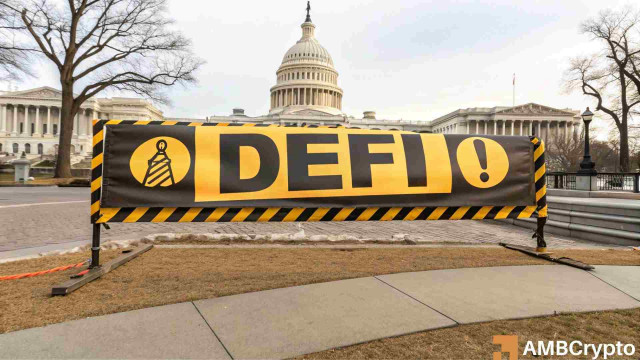
ConsenSys lawyer slams Senate draft: ‘Not a safe harbor' for DeFi operators
AMBCryptogeneral
Will the DeFi dilemma delay crypto market structure bill to 2026?
📋 Article Summary
The Contentious Debate Surrounding the Senate's Draft Legislation for DeFi Operators
The recent comments by a ConsenSys lawyer criticizing the Senate's draft legislation have reignited the ongoing debate surrounding the regulatory landscape for decentralized finance (DeFi) operators. This contentious issue has far-reaching implications for the broader cryptocurrency ecosystem, with experts warning that the proposed framework may not provide the necessary safeguards for DeFi participants.
At the heart of the matter is the Senate's draft bill, which aims to establish a "safe harbor" provision for DeFi platforms. However, the ConsenSys lawyer, who is deeply embedded in the industry, argues that the current proposal falls short of providing the desired level of protection. This assessment underscores the complex and evolving nature of the regulatory landscape surrounding DeFi, a rapidly growing sector that has become increasingly crucial in the world of cryptocurrency.
The DeFi dilemma poses a significant challenge for policymakers, who must balance the need for consumer protection with the desire to foster innovation in this rapidly evolving space. The Senate's draft legislation is seen by some as a well-intentioned attempt to address this delicate balance, but the concerns raised by the ConsenSys lawyer suggest that more work may be needed to ensure that the final framework truly safeguards the interests of DeFi operators and their customers.
Experts in the cryptocurrency industry have warned that the failure to strike the right balance could lead to unintended consequences, potentially delaying the implementation of a comprehensive crypto market structure bill until as late as 2026. This extended timeline would leave the DeFi sector in a state of regulatory uncertainty, which could hamper its growth and adoption, and ultimately impact the broader cryptocurrency ecosystem.
The implications of this debate extend beyond the DeFi sector, as the regulatory framework developed for this space is likely to have ripple effects across the entire cryptocurrency industry. Investors, both institutional and retail, will be closely watching the progress of these discussions, as the outcome could significantly impact their investment strategies and risk assessments.
Furthermore, the broader crypto ecosystem, including developers, exchanges, and other service providers, will be keenly interested in the final shape of the legislation, as it will shape the regulatory environment in which they operate. The potential for delayed or fragmented regulation could create challenges for these stakeholders, as they navigate the complex and rapidly evolving landscape of digital assets.
In conclusion, the debate surrounding the Senate's draft legislation for DeFi operators is a critical juncture in the ongoing effort to establish a comprehensive regulatory framework for the cryptocurrency industry. The concerns raised by the ConsenSys lawyer highlight the complexities involved, and the need for policymakers to engage closely with industry experts to ensure that any proposed legislation strikes the right balance between consumer protection and fostering innovation. The ultimate outcome of this debate will have far-reaching implications for the future of the cryptocurrency ecosystem.